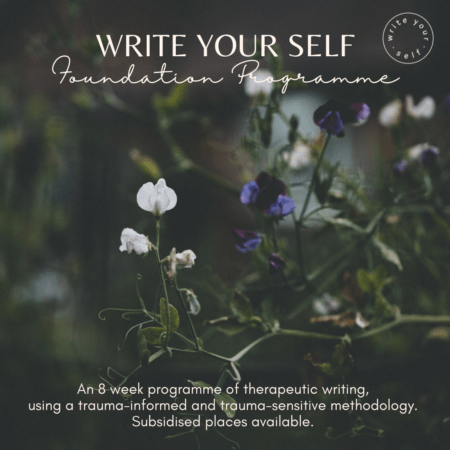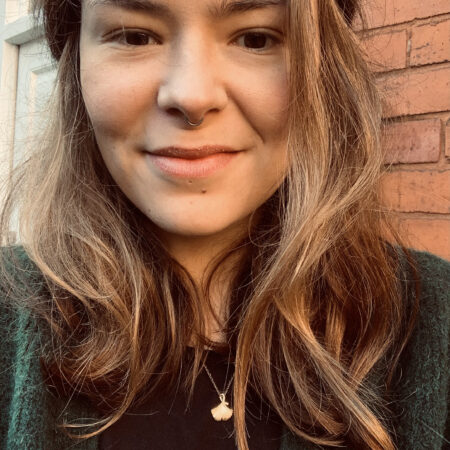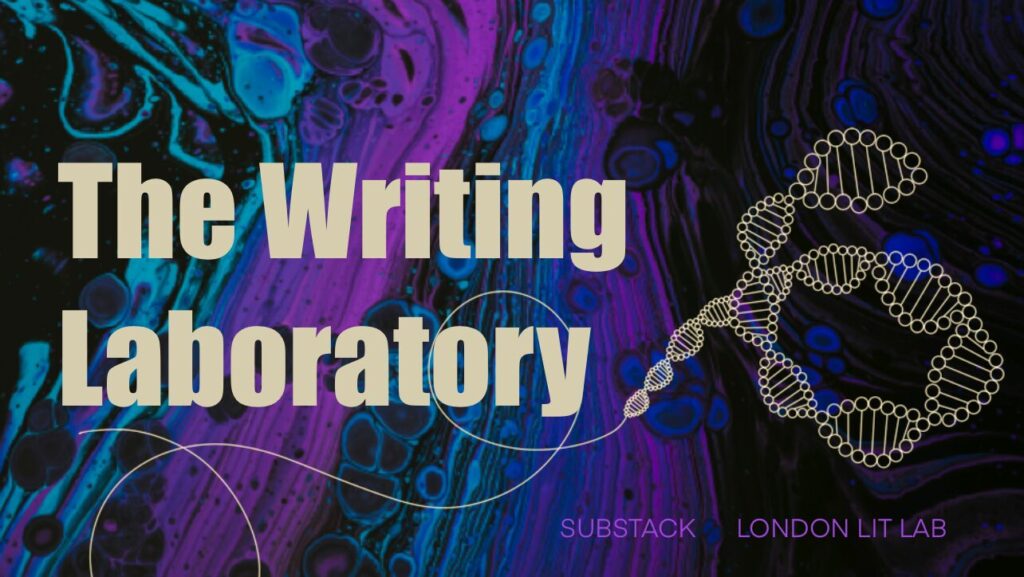After a difficult, overwhelming or traumatic experience, we can be left feeling powerless, without voice, language or agency. Research shows that traumatic events can immobilise those regions of the brain which we need to put words to our experiences, and therefore understand them. For those of us with a history of trauma, writing can be a valuable catalyst for healing and recovery. Through writing, we can begin to cultivate linguistic control over the trauma and reorganise our story, in the supportive presence of like-minded peers
Using a trauma-informed writing methodology, the Write Your Self programme helps participants to reclaim their voice through writing. Our eight-step writing process includes key knowledge about trauma, trauma-sensitive writing exercises, as well as tools and resources to help writers find out what they need to create a sustainable and healing writing practice in the longer-term. Write Your Self is an organisation based in Sweden and their educational programme has a global reach. Find out more here.
Who is this course for? Would it be suitable for me?
In short, it’s for everyone. You do not have to call yourself a writer to join the programme, the only pre-requisite is that you’re interested in the idea of using creative writing as a therapeutic tool for your own wellbeing. Whilst the programme was created specifically for trauma survivors, you do not need to describe yourself in this way to take part. We work on the principle that trauma, as an experience, is defined and determined solely by the individual – what might be traumatic for one person may not be for another, and we respect and acknowledge this. The programme can also support us to write about a broad range of experiences, not necessarily traumatic, but which can still leave us feeling silenced – for example grief, serious illness, war, discrimination and bullying.
What does the course involve?
Here is a brief breakdown of the modules that we will be covering on the Foundation Programme.* All sessions run 6–8pm GMT.
Session 1: A Room of One’s Own (01/02/23) In our first session, we will get to know each other better and start to consider what conditions we need individually, and collectively, to write safely and effectively.
Session 2: Begin Writing (08/02/23) In this session we will try out gentle, introductory writing exercises to lay the foundations for our practice. We will specifically explore stream of consciousness writing as a tool for accessing our authentic voice, granting us permission to write with more freedom.
Session 3: Self-care (15/02/23) In our third session together, we will review the importance of taking care of ourselves, emotionally and physically, as we write and grow as writers.
Session 4: The Writing Body (22/02/23) This week we will consider the idea that our bodies can be keepers of unwritten and unspoken stories that are waiting to be heard. Through various exercises, we turn to our bodies and enlist their help with writing our story.
Session 5: Experimenting with Genre and Form (01/03/23) In session five we will experiment with different genres and play around with various narrative perspectives as a way of further elevating our writing. We will look at the reasons why weaving our own stories into fiction or poetry, for example, could have therapeutic value.
Session 6: Developing a Writing Archive (08/03/23) This week, each writer will create their own personal writing archive. This is a live, on-going record or document of writing topics, ideas or even memories that a writer might wish to examine further, in their own time and at their own pace.
Session 7: Creating Wholeness (15/03/23) As we head towards the end of the programme, we reflect on our progress so far and delve deeper into the research that has been done in the area of therapeutic writing. In this session we also look at the significance of tense in our writing and healing.
Session 8: Expressing the Wordless (22/03/23) In our final session, we bring together our learning, celebrate our resilience and lean on our community of writing peers to find the motivation that we need to keep writing our stories, especially those that seem to transcend language.
*Please note that each certified Write Your Self guide will deliver the course slightly differently and will have made their own adaptations. I continue to evolve the structure, format, content and learning materials over time and in line with participant feedback. Each session description is my own interpretation and development of the original methodology.
Frequently Asked Questions:
Do I have to write about trauma during the course?
Absolutely not. You decide what your writing subjects will be, always. Many participants choose not to write about the trauma they’ve experienced, at least to begin with.
How many places are available?
This programme offers a maximum of 20 places. Groups are closed and kept relatively small to ensure a quality learning experience for all participants, where everyone receives adequate space and time to develop their writing practice.
Will I be expected to share my writing with others?
No, there is absolutely no expectation for you to read aloud or share anything about the content of your writing. The programme is built upon and incorporates trauma-informed principles at all times – this means that you alone will decide your level of participation. All contributions have value, even if that’s listening.
Is this course considered a treatment for trauma?
This programme is not a substitute or replacement for any type of counselling, psychotherapy, mental health care or clinical trauma treatment. It is, however, intended to work in tandem with those treatments. Though I am a therapist, when I deliver the programme I offer an educational space, not group therapy. Here, our focus is writing. Throughout the programme you are responsible for your own self-care. If you are struggling with your mental health, feeling overwhelmed, or have very recently experienced a traumatic event, please consider seeking professional support before enrolling.
What you’ll receive as part of the course fee:
- two hours of live learning each week with a group of peers on zoom (6-8pm GMT)
- use of a closed messaging platform (Slack) to stay in touch with your group in between sessions to discuss exercises, share work or to chat about anything else related to the course
- high-quality workbooks that run alongside the live sessions, which can be completed digitally or printed out
- regular writing prompts to try out between sessions to deepen your practice and to maintain momentum with your writing
- meaningful feedback on your writing from the tutor and your peers
- a recommended reading list, as well as links to other useful resources, e.g. articles, videos and podcasts
- a fixed space each week dedicated to your personal and professional development
- access to a writing community that you can stay in touch with (if you choose to) – for example, you might like to come together as a group to write and share your work after the programme has finished
- a sustainable writing practice that you can continue to use in the future to support your wellbeing.
What people say about Katie:
“A very enriching and healing experience.”
“I think the course was true to its description. It was a good integration of theory, experimental learning with an increased level of shared reflection time for members who chose to pursue this. A great deal of emphasis was put on safety and choice and this too was appreciated. We were given lots of support between sessions and a variety of media to explore our writing from. Katie, you were generous, thoughtful, boundaried, clear, consistent and respectful of all our needs. A fantastic communicator and enabler who was inspiring to work with. The writing exercises were varied and related to the theme of each week’s workshop. I felt the format suited Zoom well.”
“I have learnt that I can write. I was very nervous about writing before I did this course. I actually didn’t enjoy it. Now, I am. I’m enjoying watching my writing and myself flourish as I go on.”
“Thank you Katie for a wonderful course. I feel that I am at the start of an exciting adventure through writing! Thanks for holding the space so well for everyone…you are a marvellous and inspiring role model.”
“The content was rich, stimulating and appropriate to our needs. The structure was clear and regular so that we knew what to expect. As a participant, I liked that regularity as it gave me a framework within which I felt safe when I wrote. I found the powerpoint presentations of high quality and a great accompaniment to the course which was delivered online.”
“Really amazing course leading. Thank you.”



